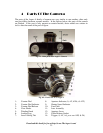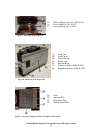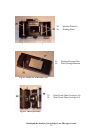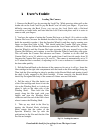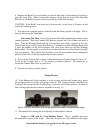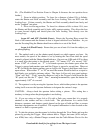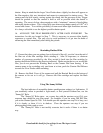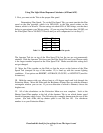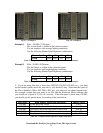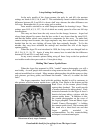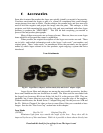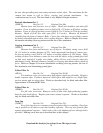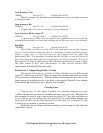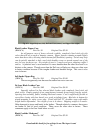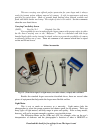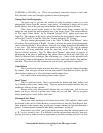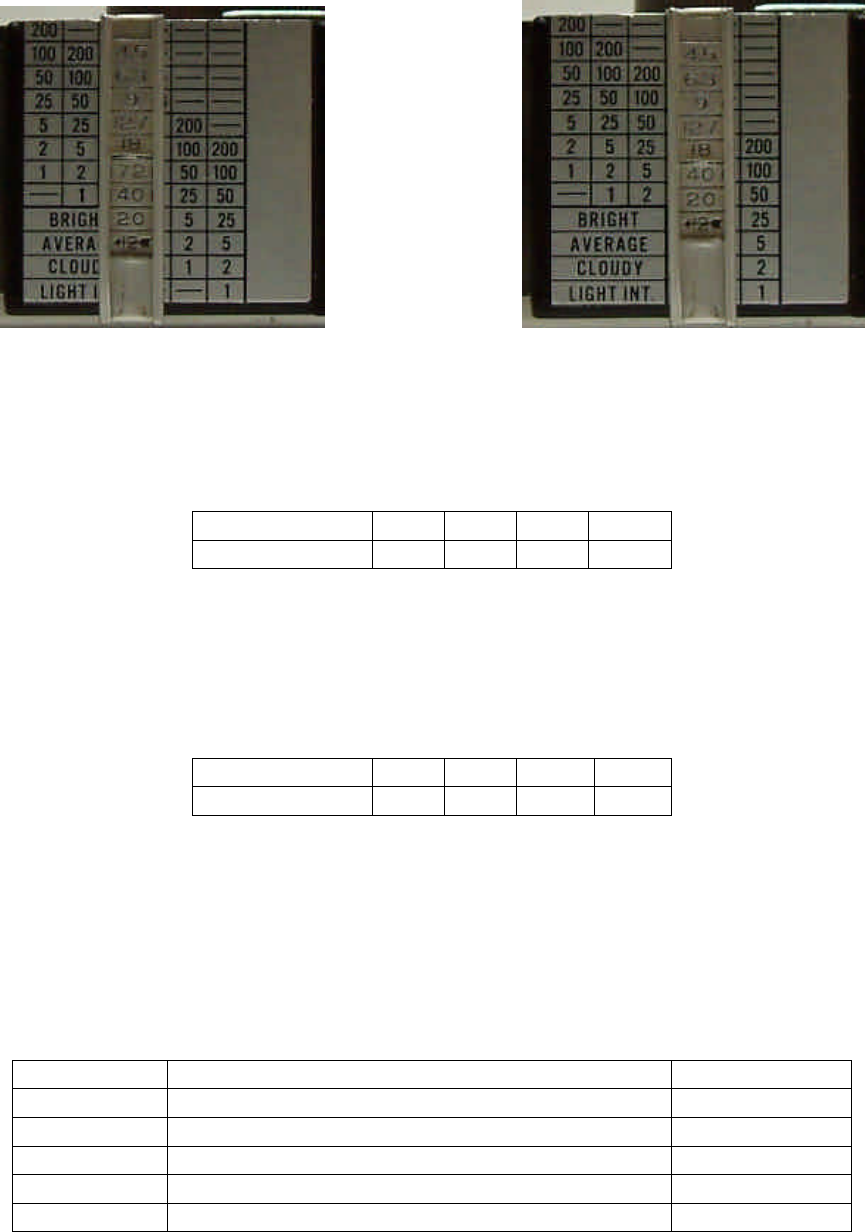
Download this book for free at http://www.TheArgusA.com/
31
Fig. 5-3 : Example 1 Fig. 5-4: Example 2
Example 1 Film: 100 ISO (72 Weston)
The second block is visible in the extinction meter.
You are outdoors with average lighting conditions.
Use the following Shutter Speed/Aperture combinations:
Shutter Speed
200 100 50 25
f-stop
f/4.5 f/6.3 f/9 f/12.7
Table 5-2: Equivalent Shutter Speed/Aperture combinations for Example 1
Example 2 Film: 50 ISO (40 Weston)
The third block is visible in the extinction meter.
You are outdoors with bright lighting conditions.
Use the following Shutter Speed/Aperture combinations:
Shutter Speed
200 100 50 25
f-stop
f/6.3 f/9 f/12.7
f/18
Table 5-3: Equivalent Shutter Speed/Aperture combinations for Example 2
V. If you are using film that is faster than 100 ISO (200 ISO, 400 ISO, etc.), you must
use the shutter speeds above the one next to your desired f-stop. Each time the speed of
the film is doubled (100 to 200, 200 to 400, etc), you must use one shutter speed faster.
For example, assume that you want to use f/18 and the Extinction Meter indicates that
you should use a speed of 5 (1/5
th
of a second). If the film speed is faster than 100 ISO,
you should use the speeds above 5 according to the chart below:
Film Speed Read Shutter Speed from the block: Shutter Speed
100 ISO To the left of the f-stop Use 5
200 ISO Above the block next to the f-stop Use 25
400 ISO Two blocks above the block next to the f-stop Use 50
800 ISO Three blocks above the block next to the f-stop Use 100
1600 ISO Four blocks above the block next to the f-stop Use 200
Table 5-4: Example Shutter Speeds for higher film speeds



